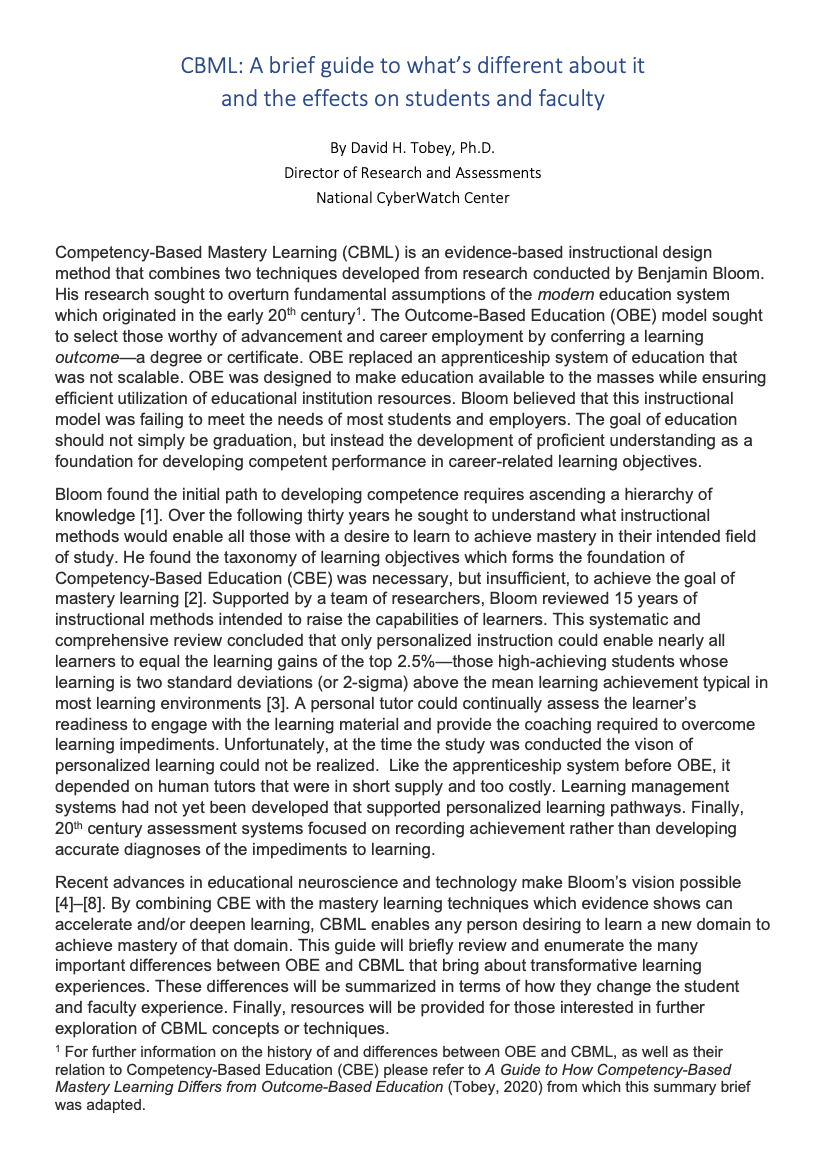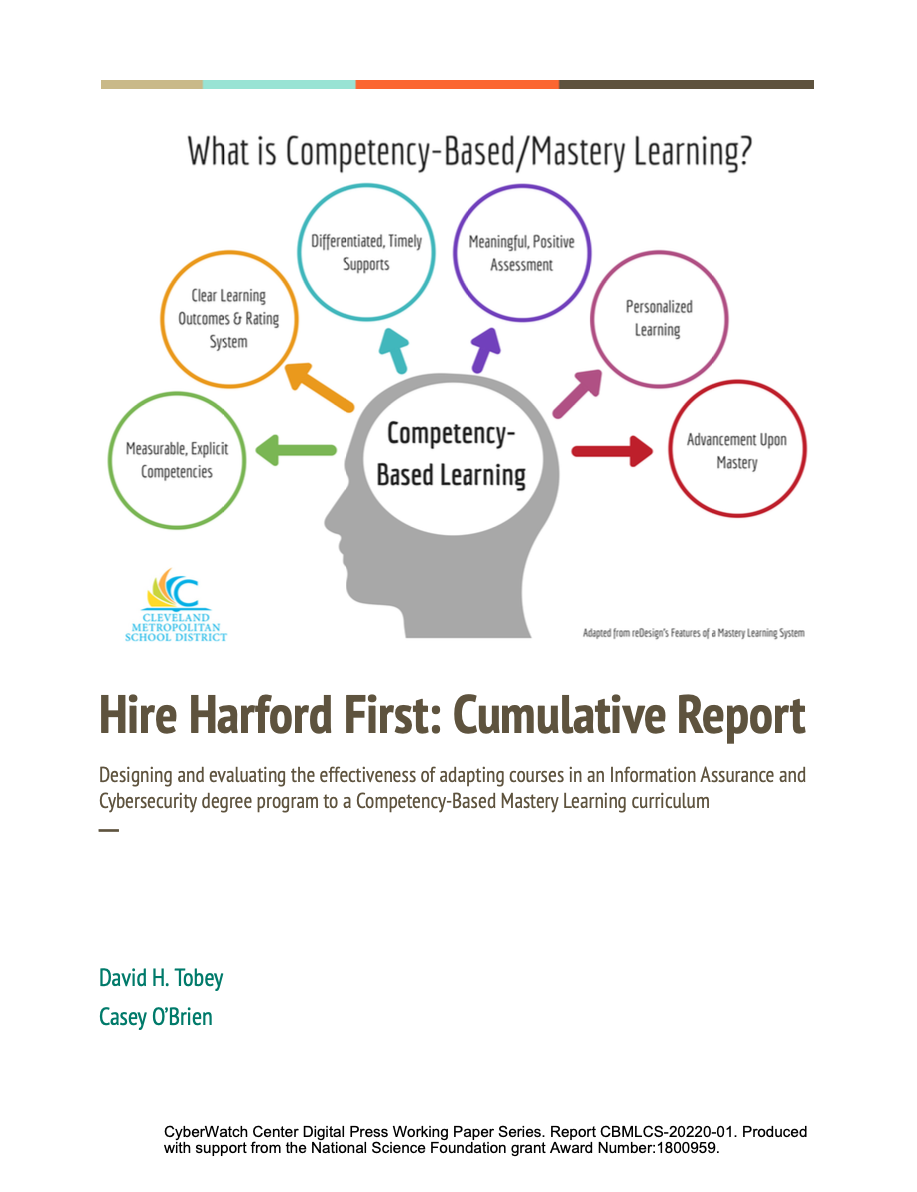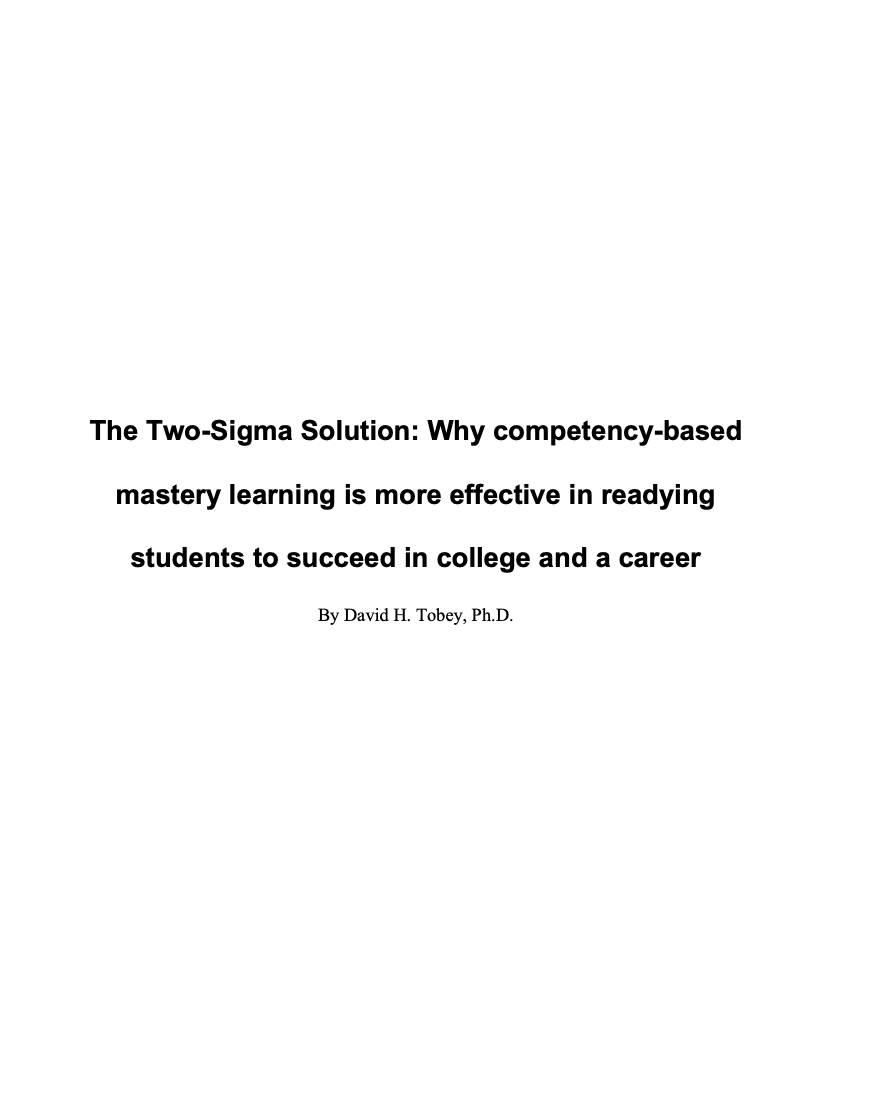
Working Paper: Competence-Based Mastery Learning (CBML): A brief guide to what’s different about it and the effects on students and faculty
Competency-Based Mastery Learning (CBML) is an evidence-based instructional design method that combines two techniques developed from research conducted by Benjamin Bloom. His research sought to overturn fundamental assumptions of the modern education system which originated in the early 20th century1. The Outcome-Based Education (OBE) model sought to select those worthy of advancement and career employment by conferring a learning outcome—a degree or certificate. OBE replaced an apprenticeship system of education that was not scalable. OBE was designed to make education available to the masses while ensuring efficient utilization of educational institution resources. Bloom believed that this instructional model was failing to meet the needs of most students and employers. The goal of education should not simply be graduation, but instead the development of proficient understanding as a foundation for developing competent performance in career-related learning objectives.


